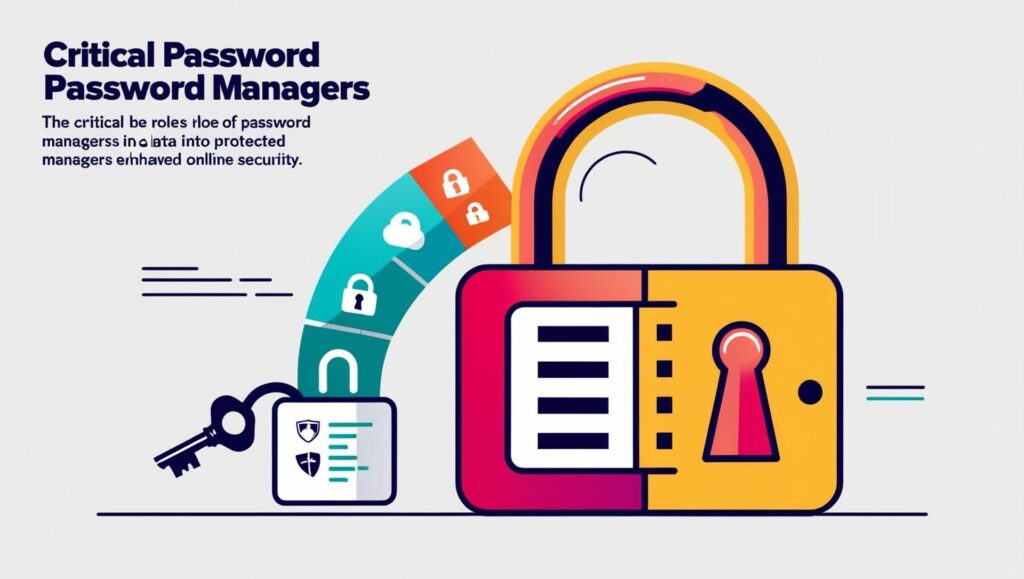In an era where digital threats are more sophisticated than ever, the security of personal and professional information has become a top priority. As cybercriminals develop increasingly advanced methods for breaching accounts, the need for robust security measures is evident. One of the most effective tools for safeguarding sensitive information is the password manager, a digital vault that is rapidly becoming indispensable in the arsenal of cybersecurity solutions.
The Critical Role of Password Managers in Security
In today’s digital landscape, the average internet user is required to remember an overwhelming number of passwords, each tied to critical accounts ranging from banking to social media. This often results in individuals resorting to weak or repetitive passwords, which can be easily exploited by cybercriminals. Password managers play a crucial role in mitigating this risk by generating and storing complex, unique passwords for each account. This ensures that even if one password is compromised, other accounts remain secure, thereby significantly reducing the potential attack surface for hackers.
Furthermore, password managers streamline the process of managing digital identities across various platforms. With a password manager, users only need to remember a single, strong master password, while the software handles the rest. This not only enhances security but also improves user convenience, as it eliminates the need to manually input passwords or use insecure methods like jotting them down on paper. The integration of password managers into browsers and mobile devices also offers seamless access to stored credentials, ensuring that users can maintain security without sacrificing ease of use.
The adoption of password managers is increasingly seen as a critical component of a comprehensive cybersecurity strategy, both for individuals and organizations. In corporate environments, they offer centralized management of employee access to sensitive systems, enabling IT departments to enforce strong password policies and monitor compliance. This reduces the likelihood of breaches due to human error, which remains one of the most common causes of data leaks. By supporting multifactor authentication and providing encrypted storage of credentials, password managers further enhance the security posture of users and organizations alike.
Enhancing Digital Safety Through Secure Password Storage
Password managers not only safeguard individual users but also contribute to the larger ecosystem of digital safety. The advanced encryption technologies employed by these tools protect stored credentials from unauthorized access, ensuring that even if the password manager itself is targeted, the data within remains safe. This is particularly important as cyberattacks become more targeted and complex, often involving the exploitation of stored data on user devices. By leveraging strong encryption standards, password managers provide a resilient defense against such threats.
Additionally, password managers often include features that alert users to security vulnerabilities, such as compromised passwords or outdated credentials. This proactive approach allows users to address potential security issues before they can be exploited. Many password managers also support dark web monitoring, which scans for leaked credentials that may have been exposed in data breaches. These features empower users to maintain vigilance over their digital security, ensuring they can promptly respond to emerging threats.
The integration of password managers with multifactor authentication (MFA) further enhances digital safety, adding an additional layer of protection. While strong passwords are crucial, they are often only the first line of defense. MFA requires users to provide another form of verification, such as a fingerprint or a temporary code sent to a mobile device. When coupled with password managers, this approach creates a robust security framework that significantly reduces the risk of unauthorized access, even if a password is compromised.
As the digital world continues to evolve, the threats to cybersecurity will undoubtedly grow in complexity and scale. In this landscape, password managers are not merely a convenience but a necessity for ensuring digital safety. By enabling users to adopt best practices in password management, these tools play a critical role in protecting sensitive information from the ever-present risks of cybercrime. As both individuals and organizations strive to secure their digital assets, the adoption of password managers will remain a key strategy in the broader effort to enhance cybersecurity and safeguard our digital future.


